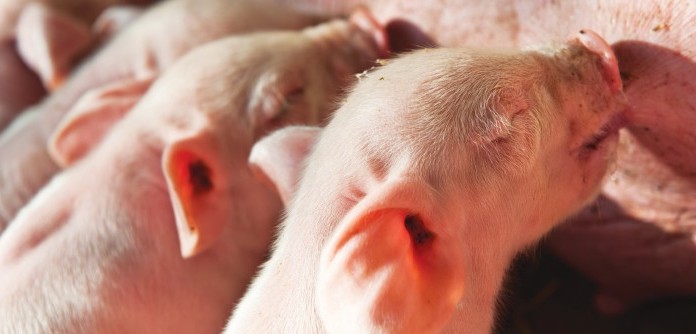Research funding received by Canterbury Christ Church academics will be used to develop new methods to freeze pig eggs and embryos.
If successful, the new methods will allow global transportation of frozen pig eggs and embryos at a commercially viable level, which so far hasn’t been possible. Agricultural companies could then transport frozen cells around the world, rather than livestock.
Topigs Norsvin, one of the biggest suppliers in the world of swine genetics, has awarded academics in the School of Human and Life Sciences £100,000 to undertake pig embryology and vitrification – the use of very low temperatures to preserve intact living cells. The money will be used to fund a full-time PhD student and to purchase consumables needed to deliver the project.
Freezing of eggs, sperm and embryos is routine in cattle production, but a number of issues have prevented the commercialisation of this in pigs. Existing freezing methods also allow direct contact between the cells and the liquid nitrogen, which is used to freeze them, but this has the potential to result in contamination.
The work will build on academic expertise and existing links to Genea Biomedx, a human IVF company and manufacturer of Gavi – a device that protects cells from coming into contact with liquid nitrogen – the work will lead to new approaches to the freezing of pig eggs and embryos.
The project will take place at the University’s Life Sciences Industry Liaison Lab at Discovery Park, Sandwich.
Project leads, Dr Katie Fowler and Dr Simon Harvey, said: “We are very excited to have received this funding from Topigs Norsvin – this is an excellent opportunity to build on our existing industrial collaborations and we hope that the project is a success.”




